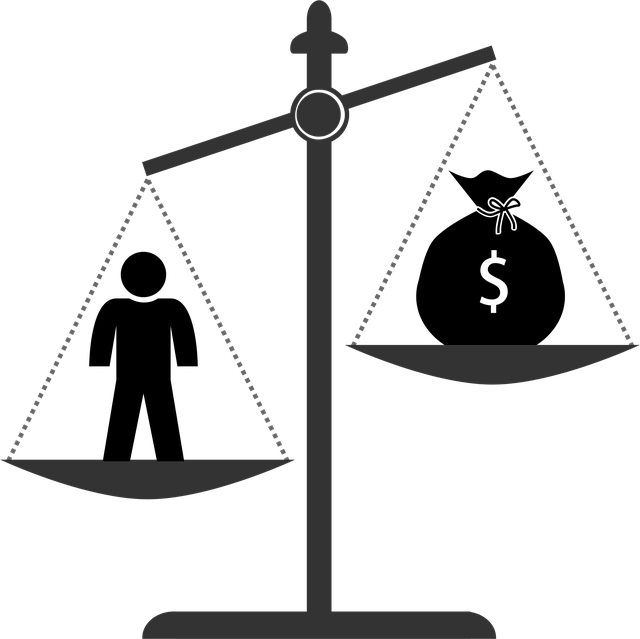Before applying for homeowner debt consolidation loans, assess debts and credit profile, compare interest rates and loan terms, improve credit score if necessary, explore home equity as collateral, weigh benefits vs. risks, analyze alternatives like refinancing or lines of credit, shop around for lenders, maintain strong credit history, strategically negotiate terms, and consider specialized lenders for bad credit.
Securing a great deal on debt consolidation can be a game-changer for homeowners looking to simplify their finances. This comprehensive guide provides top tips tailored to navigating the process successfully. First, understand your debt and credit profile. Then, compare interest rates and loan terms meticulously. Explore homeowner benefits and incentives, shop around for multiple lenders, and build a strong credit history pre-loan. Finally, negotiate and secure the best conditions possible. By following these steps, you can find the ideal homeowner debt consolidation loans at favorable terms.
- Understand Your Debt and Credit Profile
- Compare Interest Rates and Loan Terms
- Explore Homeowner Benefits and Incentives
- Shop Around for Multiple Lenders
- Build a Strong Credit History Pre-Loan
- Negotiate and Secure the Best Conditions
Understand Your Debt and Credit Profile

Before diving into homeowner debt consolidation loans, it’s crucial to understand your current debt and credit profile. This means assessing your various debts—credit cards, personal loans, outstanding mortgages—and their corresponding interest rates. Knowing exactly where you stand financially is a strong foundation for securing a great deal. Your credit score plays a significant role in the interest rates you’ll be offered, so take time to review it and make necessary improvements.
Understanding your home equity as collateral for debt consolidation can also provide advantageous terms. If you have a substantial amount of home value, you may qualify for homeowner financial planning strategies that leverage this asset. This could result in lower interest rates and more manageable repayment terms. When considering use home value to consolidate debt, carefully evaluate the potential benefits against the risks involved, such as the possibility of losing your home if you fail to make payments.
Compare Interest Rates and Loan Terms

When considering homeowner debt consolidation loans, comparing interest rates is non-negotiable. This is a key factor that can significantly impact your long-term savings. Different lenders offer varying rates, and understanding these differences is crucial to securing the best deal. Look beyond just the advertised rates; analyze the loan terms as well. A lower rate isn’t always better if the repayment period is too short, making the monthly payments unaffordable. Aim for a balance between a manageable interest rate and a reasonable term length that aligns with your financial goals and budget.
Additionally, explore options like consolidating debts and refinancing your mortgage or considering a home equity line of credit for debt consolidation. These strategies can provide more flexible repayment terms and potentially lower rates compared to traditional loans. Assessing these alternatives alongside homeowner debt consolidation loans will ensure you make an informed decision tailored to your unique financial circumstances.
Explore Homeowner Benefits and Incentives

Homeowners with significant debts may find relief through homeowner debt consolidation loans, which offer several benefits. These loans allow individuals to combine multiple high-interest debts into a single repayment stream, significantly simplifying their financial obligations. In many cases, homeowners can secure lower interest rates on these loans compared to their existing debts, saving them substantial amounts over time. This not only alleviates the burden of numerous payments but also opens up opportunities for better budgeting and savings.
Moreover, homeowner debt consolidation loans often come with tax advantages. The interest on these loans is usually tax-deductible, making them an attractive option for homeowners looking to fix high-interest credit card debts. However, it’s crucial to understand the debt consolidation and tax implications before proceeding. While an homeowner equity line of credit pros and cons exist, such as potential interest rate fluctuations, thoughtful planning and comparison can help homeowners make informed decisions to improve their financial health.
Shop Around for Multiple Lenders

When considering homeowner debt consolidation loans, shopping around for multiple lenders is a strategic move that can help you secure a great deal. This process allows you to compare interest rates, loan terms, and fees offered by various financial institutions. Websites and comparison tools can make it easier to gather information about different lenders and their products. Remember, the goal is to find a lender who offers competitive rates and flexible terms tailored to your financial situation.
By shopping around, you increase your chances of finding a lower interest rate on home debt consolidation loans, which could significantly reduce your overall repayment cost. This strategy also enables you to understand the market better and negotiate more effectively. Additionally, comparing lenders helps you identify any potential red flags or hidden costs associated with specific consolidation plans, ensuring you make an informed decision to get out of debt faster while reducing financial stress.
Build a Strong Credit History Pre-Loan

Before applying for a homeowner debt consolidation loan, it’s crucial to build a strong credit history. A solid credit score demonstrates your financial responsibility and increases your chances of securing favorable loan terms. Start by reviewing your credit report regularly to identify any errors or discrepancies. Pay all your bills on time, including utility bills, credit card payments, and other recurring debts. This consistent on-time payment history will significantly boost your creditworthiness.
Additionally, maintaining a low debt-to-income ratio is essential when considering a homeowner consolidation loan. This means ensuring that your monthly income covers not only your existing expenses but also any new loan payments comfortably. Evaluating your financial situation and prioritizing the repayment of high-interest debts with a consolidation loan can help you choose the best option for your needs. By fixing high-interest debt with a strategic homeowner consolidation loan, you’ll be well on your way to achieving better financial health and choosing the most suitable loan for your debt consolidation goals.
Negotiate and Secure the Best Conditions

When considering a homeowner debt consolidation loan, negotiation is key to securing the best conditions. Don’t be afraid to ask for lower interest rates or more favorable repayment terms. Lenders often have room to maneuver, especially if you’re a homeowner with equity in your property. Highlight your financial discipline and ability to make consistent payments to increase your chances of getting a better deal.
Remember that debt consolidation UK bad credit need not be an obstacle. Many lenders cater specifically to homeowners dealing with less-than-perfect credit histories. Explore debt relief strategies tailored for homeowners, such as refinancing to pay off credit card debts or converting existing home equity into cash to settle high-interest loans. These options can help you gain control over your finances and reduce the overall cost of debt repayment.
Securing a great deal on debt consolidation requires a strategic approach. By understanding your debt, comparing interest rates, exploring homeowner benefits, shopping around for lenders, building or improving your credit history, and negotiating terms, you can find the best homeowner debt consolidation loans to suit your needs. Remember, careful planning and research will help you achieve financial peace of mind.
